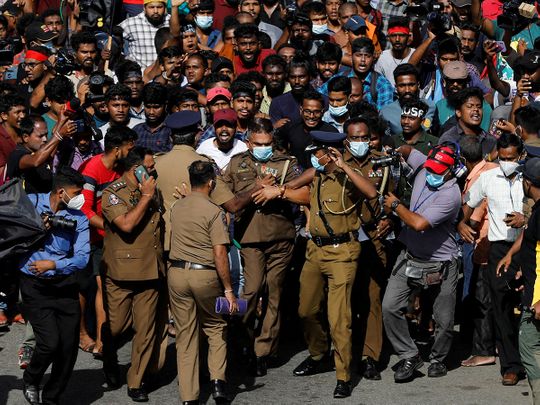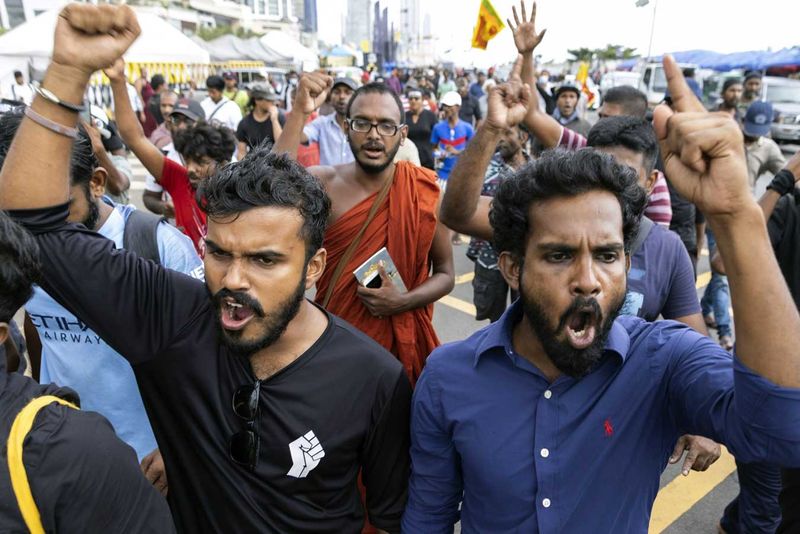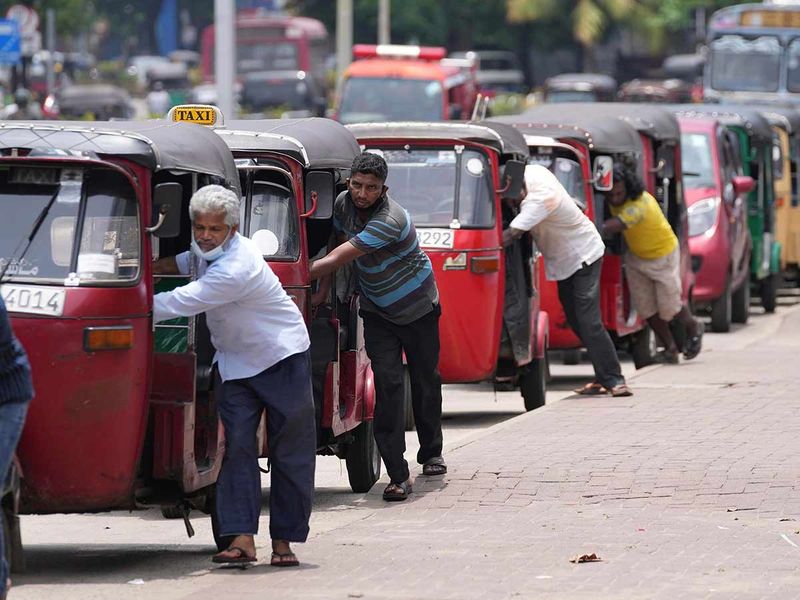
Here is the 50 billion dollar question that needs to be answered: when will fresh general elections be held in Sri Lanka?
The next elections are due only in 2024. But the political situation in the island nation may not wait for that long. The prime minister and his cabinet were forced to resign, and a once-powerful president had his palace taken over by protesters. He fled the country and resigned.
The Rajapaksa family-led Sri Lanka Podujana Peramuna (SLPP) has a massive majority in the Parliament. They have chosen Ranil Wickramasinghe as the new president, the sole MP of his centre-right party. Can he take Sri Lanka out of its economic morass?
To distance himself from the Rajapaksas, Ranil Wickramasinghe has said he is not their friend. He is not wrong, because he is being seen as their pawn, not friend.
The International Monetary Fund seems wary of helping a country that does not have political stability. For political stability, Sri Lanka’s best bet would be to hold another election.

Elections in 6 months
Of course, the economic situation is so bad that it may not be feasible to hold elections. Hence, the President would do well to announce elections, say, in 6 months. Or, elections immediately after securing an IMF package that would temporarily help end food and fuel shortages.
This would gain the confidence of the public, and the protests would stop. In other words, Wickramasinghe would be able to buy time from the people. He may then be able to spend this time unequivocally on persuading lenders, most notably China, to restructure Sri Lanka’s foreign debt.
In the absence of political stability, the international community does not seem to be in a hurry to help Sri Lanka with more debt. Except India, which has given Sri Lanka a credit line of nearly 4 billion dollars, not too many countries have extended to aid.

Hunger and famine
Sri Lanka’s crisis may only just have begun, with hunger and famine looming large. If that sounds alarmist, consider this: farm output was lost one year to a hare-brained shift to organic farming, and now to a shortfall of fertilisers. Nor does Sri Lanka have the foreign exchange to import food.
According to the UN’s World Food Programme, 30 per cent of Sri Lankans are living in food insecurity, battling food inflation, unable to produce nutritious food.
A once-prosperous country with a per capita income higher than India’s is fast becoming a basket case. Unless the country can solve food and fuel shortages, foreign tourists won’t arrive, and the engines of the economy won’t start roaring again.
The way out of Sri Lanka’s Catch 22 situation is an early election or at least the promise of one. How can country with a national emergency look like the picture of political stability?
Who’s the culprit?
Consider the case of Sri Lankan Rupees 17.8 million to understand why reform is needed. The protesters stormed the Presidential Palace and while they are said to have looted a lot of artefacts, they handed over Rs17.8 million in cash to the police. This was an embarrassment for the Rajapaksas.
The people did not loot the cash, but the police has so far been unable to produce it in court. The court has demanded that the cash be brought in. Meanwhile, the police has arrested the protesters accused of counting the cash and safely handing them over to the police.
There may be a lull in the protests for now but how long can people wait for days in a queue to fill a petrol tank?
It is incumbent upon Sri Lanka to restore stability and call fresh elections as soon as possible.










